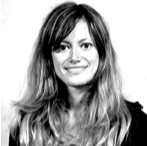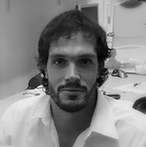University of Leeds

The project team brings a unique combination of Information Science, Political Communication and Design (Leeds) with Computer-Supported Argument Modelling & Visualisation (OU).
Stephen Coleman
Stephen Coleman is Professor of Political Communication at the Institute of Communications Studies, University of Leeds, Honorary Professor in Political Science at the University of Copenhagen, and Research Associate at the Oxford Internet Institute, University of Oxford. He is also Co-Director of the Centre for Digital Citizenship, an interdisciplinary research centre within the University that researches the changing nature of citizenship and governance in a networked society. One of the main objectives of the research centre is to engage with both citizens and policy-makers to explore the democratic potential of digital media and technology, and in so doing, contribute to the design and development of such media and technology. Coleman’s recent work in the area of “digital citizenship” includes a study of news, information circulation, and the local media ecology in the city of Leeds, as well as a study of online deliberation, its meaning, practices, and consequences. Professor Coleman also recently published the conclusions of an already influential study, which he led, that explored the first-ever British televised prime ministerial debates (2010 General Election) with a view to understanding how they were received by the public; how they were depicted in the press and on television; and how far they registered online. Coleman has written numerous journal articles and books on the topic of how the Internet can potentially improve aspects of our representative democracy. He thus brings his extensive knowledge and scholarship in the areas of Political Communications, e-governance, online deliberation, and digital engagement. He also brings his expertise in a range of research methods, including focus groups, interviews, and discourse analysis. In addition to his extensive record of research collaborations, in the past Professor Coleman has collaborated with policy-makers, journalists, and media executives, and thus will be able to provide the project with important links to various networks that will ensure impact of the project outside of the academy.

Giles Moss
Giles Moss is Lecturer in Media Policy at the Institute of Communications Studies, University of Leeds. His research crosses the fields of political studies and media and communication and he has a particular research interest in the relationship between new forms of digital media and democratic citizenship. His recent work includes research on political representation, online deliberation, and digital data methods, and he therefore brings specific knowledge and scholarship in these areas to the project. He also brings expertise and knowledge in qualitative research methods and the handling and analysis of qualitative data.

Paul Wilson
Paul Wilson is a Lecturer in the School of Design, University of Leeds. He is also a partner in the Northampton-based community arts organisation, Liquidiser, which seeks to actively and creatively engage with marginalised spaces, stakeholders, groups, and individuals. His research focuses on exploring the relationships between typography, writing, and aspects of everyday life. Dr. Wilson’s recent design research include a project, in partnership with the Club & Institute Union (CIU), that uses photography and design to document the decline of the Working Men’s Club. Dr. Wilson brings his expertise as not only a design practitioner but also as a design scholar who is able to critically reflect on the practical aspects of effective design.
The Open University

Simon Buckingham Shum
Simon Buckingham Shum is Professor of Learning Informatics at The Open University’s Knowledge Media Institute (KMi), where he serves as Associate Director (Technology) and leads the Hypermedia Discourse Group. With a background in Psychology (BSc), Ergonomics (MSc) and Human-Centred Computing (PhD), he brings a user centred perspective to computational support for argument modelling and mapping. His Google Scholar h-index=32, reflecting foundational work in Argumentation-based Design Rationale; his book Visualizing Argumentation is the standard reference for the field. He has secured external research funding for the OU worth £10M approx., including two EPSRC Grants involving Argument Mapping, which provide foundations for this proposal: Collaborative Advanced Knowledge Technologies in the Grid (Co-I: GR/R85143/01) and An Ontology-Based Environment for Managing Distributed Research Knowledge (PI: EPSRC GR/N35885/01). He has been a Visiting Research Fellow at University of Colorado at Boulder and University of Tokyo, and currently at University of Bristol. He is a founding member of several online communities focused on Argument Mapping and sensemaking (Compendium Institute, GlobalSensemaking.net, LearningEmergence.net) and the Society for Learning Analytics Research.

Anna De Liddo
Anna De Liddo is a Research Associate on Collective Intelligence at The Open University’s Knowledge Media Institute, working on the design, development and evaluation of argument mapping web platforms such as Cohere and the Evidence Hub. She is currently the OU lead on the EU-funded FP7 Catalyst Collective Awareness project. She gained her PhD at Polytechnic of Bari, Italy, investigating ICT for Participatory Planning and Deliberation, using OU argument mapping tools. In the course of her PhD she took individual responsibility in several international projects (Hypermedia Discourse, Palette and OpenParks) in the UK, Greece and Italy. She is member of the of the Hypermedia Discourse group, the Compendium Institute, and Global Sensemaking community.

Brian Plüss
Brian Plüss is Research Associate at The Open University’s Knowledge Media Institute. He recently defended his doctoral thesis “A Computational Model of Non-Cooperation in Natural Language Dialogue” at The Open University’s Computing and Communications Department. In his PhD, he specialised in analysing and modelling non-cooperation in political interviews. Before this, he obtained a MSc in computer science at the National University of Rosario, Argentina. He has carried out research on virtual human systems at USC’s Institute for Creative Technologies in Los Angeles, California, and on software architectures and formal methods in Portugal, Argentina and Finland. From 2001 to 2004, he worked as a software engineer for ATX Software in Lisbon, Portugal. His duties included web interface design, database administration, quality assurance, project management and customer liaison.

Alberto Ardito
Alberto Ardito is an MSc student of Computer Engineer at Politecnico of Bari. During his academic studies he has worked as freelance ICT consultant on web technologies. After completing a Bachelor Degree at Politecnico of Bari, with the thesis “Computer vision system for date recognition on LPG cylinders in critical conditions”, he collaborated with Politecnico of Bari as a computer engineer, implementing algorithms and applications for the extraction of emotion features from images/videos of human faces. Through his experience as a freelance ICT consultant, Alberto developed advanced skills in web technologies, interface design, user experience and computer vision. He is also the co-founder and CTO of tournelsud.com, an online tour operator promoting slow and sustainable tourism in Puglia, Italy.
